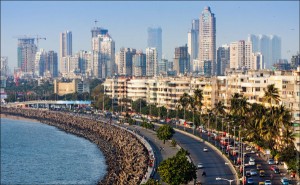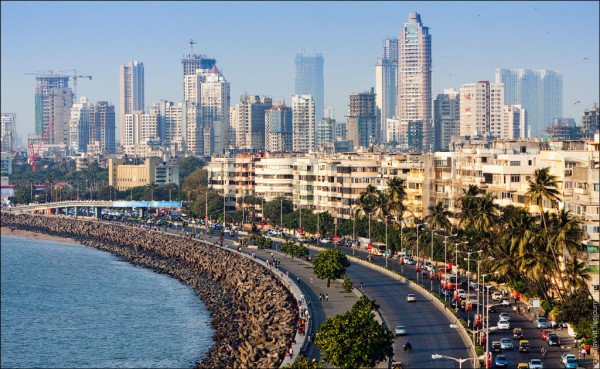In this blog post, Harshit Singh Jadoun, a Third Year student of B.A. LLB(HONS) from Institute of Law, Nirma University, Ahmedabad and a Diploma in Entrepreneurship Administration and Business Laws from NUJS, Kolkata, analyses the reasons why a majority of companies in India are incorporated in Mumbai.
Introduction
India is no doubt playing a crucial role in the global market and is even emerging as a key player in implementing as well as executing policies inclusively. Establishing an enterprise requires various prerequisites to be taken care of with several formalities to be completed that are necessary according to law to be complied with. Apart from these procedures and practices, there are multiple factors that govern and regulate the outcome and performance of the corporation; location is inter alia one of the key factors that have a bearing upon the business of the venture.  Every entrepreneur aims at positioning its undertaking at an economical place and where sufficient manpower is available to carry on the project effectively; therefore, a decision regarding choosing the location turns out to be a strategic and an important one. Mumbai is known as the commercial capital of India and its firm economic growth, geographical location and proximity to other cities (outside as well as inside India) due to the effective mode of communication and transportation fascinates industrialists and many freshers to establish their business in the city.
Every entrepreneur aims at positioning its undertaking at an economical place and where sufficient manpower is available to carry on the project effectively; therefore, a decision regarding choosing the location turns out to be a strategic and an important one. Mumbai is known as the commercial capital of India and its firm economic growth, geographical location and proximity to other cities (outside as well as inside India) due to the effective mode of communication and transportation fascinates industrialists and many freshers to establish their business in the city.
In this article, the author tries to highlight the reasons and the grounds as to why most private companies in India are incorporated in Bombay.
Location: An Essential Factor for Incorporating a Private Company
Incorporation of a company is the primary step in laying its foundation and giving a platform to the entrepreneur to initiate the business with the hope of achieving future economic prospect, but there are numerous risks that an entrepreneur has to undertake to establish his business by combating and overcoming all the menaces tangled in it. Albeit, business benefits, investment, and profits are sin qua non of a successful enterprise but choosing the appropriate location for the business stands equally at an indispensable footing with other factors concerned to make a lucrative venture. Resolution regarding the location of the business is very pertinent to all types of companies irrespective of its size; it has several impacts on the long-term economic growth of the company along with the cost of operation and consumers suitability.[1] 
Usually, it is incongruous to alter or shift the location of the company once settled because it may result in considerable amount of loss to the companies and members associated with it. Moreover, the consumers attached to it may find it incompatible to get settled with the new location. Therefore, decisions once taken regarding the location is hard to undo.[2] Various prerequisites have to be taken into consideration before choosing up a location which is apt for the business, some of them being the availability of raw material, proximity to market, availability of labor, transport facilities, external economies, power, finance, etc.[3]
Mumbai as an Apt Location for Private Companies
- Financial Capital: The existence of various Indian stalwarts along with strong industrial base act as a hub for trade, business and industries and the contribution of the city to the economic growth and gross domestic product of the country leaves no stone unturned for it to not to be called as the financial capital of the country. Mumbai has two largest stock exchanges namely the National Stock Exchange and the Bombay stock exchange. The headquarters of Reserve Bank of India, Security Exchange Board of India and almost all major banks makes the city financially resilient which fascinates freshers to set up their enterprise irrespective of the risk involved. The city gained its importance from the time when a protected deep-sea harbor was discovered due to which East India Company bought the island from the crown and shifted its headquarters from Surat to Bombay. Businesspeople from Gujarat who are an expert in stock trading add their culture and skill and are prompt in reacting to the bids and offers in the market. Their plain lifestyle and lowest cost of operation in the world makes them a significant player in the financial world of the country.[4]

- Investment Policies and Incentives: The extensive industrial development in Mumbai appeals to both foreign as well as domestic investors. The policy framed by the State Government provides an ideal business climate by encouraging the investors to invest in various sectors of the state and contribute to the overall development of the economy. The robust infrastructure, skilled manpower and high professional ethics offers and conducive business environment and well-established sectors in engineering, automobiles, drugs, textiles, and biotechnology attract the largest quantum of investment. Mumbai is also said to be the land of opportunities due to a large number of employment opportunities that it provides through the service sector and grants various incentives and perks to the people employed which give stability to businesses, promoting investment and growth. The tax incentives bestowed by the State Government and the availability of major nationalized banks makes it easier to acquire timely funds by the entrepreneurs. Therefore, they are encouraged to set up their business in Mumbai. The city gives them a platform for huge segments of buyers and traders to make a trade which helps their business to prosper across major corners of the country.
- Robust Infrastructure: The heavy infrastructure with well-built institutions provides a reputable platform for the investors to invest due to established connectivity to every sector and place in the world. The city has consistent and cost effective telecom connectivity and to substantiate with some statistics the city consists of 11 percent of National Road Network along with 9 percent of the National Railway Network. The state airports handle 34 percent of India’s international passengers and cargo. Recently the State Government is planning to set up “Industrial Township Authorities” in the respective industrial areas of the state that will be responsible for managing common infrastructure with active participation from the industrial units located in the area.[5] The transport infrastructure being carried out in Mumbai by the Maharashtra State Road Development Corporation (MSRDC) is tremendous and has added a lot to the economic growth of the city. The corporation is bringing into existence several notable projects such as the Mumbai-Pune Expressway and many other flyover projects in Mumbai.[6] To name a few upcoming projects which will further bolster the infrastructure would be the Mumbai Trans Harbour Link (MTHL) Project, which would effectively reduce the commute time from South Mumbai to Navi Mumbai to 30 minutes, enhancing the entire traffic and development dynamics of the region,[7] Adding more to this CIDCO has proposed the Navi Mumbai International Airport, which promises to provide world-class facilities to passengers, aircrafts and airlines.[8] The power sector in Mumbai is given no less regard, due to the existence of major stalwarts like Tata and Reliance the city has an abundant power supply which adds a feather to the stout infrastructure of the city.

- Special Economic Zone: The central aim of the Government behind building these zones is to augment industrialization and foster economic growth parallel with sustainable development. The foremost advantage of the special economic zone in Mumbai is that they get tax rebates with fiscal incentives along with land at a reasonable price which makes it easier for the entrepreneurs to start-up their business at a sound rate.[9] There are uncountable benefits attached to the Special Economic Zone such as the promotion of economic activity, exports of goods and services, investment from domestic and foreign sources, the creation of employment and many others.[10] The Special economic zones unit in Mumbai provide an exemption from VAT on domestic sourcing of capital; there is income tax holidays on business incomes, 10% FDI is allowed for all manufacturing activities, customs clearances, easy access to the airport and railway authorities. Some of the SEZ established in Mumbai are SEEPZ (Santacruz Electronics Export Processing Zone), Khopata, Navi- Mumbai.[11]
Conclusion
Mumbai no doubt is a great hub for entrepreneurs and freshers as it offers great opportunities with resources to enter the world of business and compete with others already present. The city has always been considered to be the land of opportunities and has certainly changed the fate of many people. In the context of this manuscript, it can in no way be denied that the city has ascended the growth of private companies due to the unrestricted capital, resources that it bestows to the firms and companies. Certainly, there is a lot more that can be modified and developed in the city to make it more welcoming to the new companies and set up an environment compatible with their business set up.
[divider]
Footnotes:
[1] Abhishek Nayak, Why are most private companies incorporated in Bombay? Ipleaders, http://blog.ipleaders.in/8116-2/, last seen 27/05/2016.
[2] Business Location (Introduction), http://www.tutor2u.net/business/reference/business-location-introduction, last seen 27/05/2016.
[3] Factors Influencing Industrial Location, http://teacherweb.ftl.pinecrest.edu/snyderd/APHG/Unit%207/Location%20Factors.htm, last seen 27/05/2016.
[4] T Thomas, Mumbai a global financial center? Of course! Business Standards, http://www.rediff.com/money/column/mumbai/20070427.htm, last seen 28/05/2016.
[5] Policies, Infrastructure Policies, Doing Business in Maharashtra, http://www.doingbusinessinmaharashtra.org/infrastructure_policy.aspx, last seen 30/05/2106.
[6] Ibid 5.
[7] Navi Mumbai Special Economic Zone, http://www.nmsez.com/infra.html, last seen 31/05/2016.
[8] Ibid 7.
[9] Advantages of SEZ Units in India, Business Maps of India, http://business.mapsofindia.com/sez/advantages-units-india.html, Last seen 31/05/2016.
[10] Ibid 9.
[11] Ibid 10.
 Serato DJ Crack 2025Serato DJ PRO Crack
Serato DJ Crack 2025Serato DJ PRO Crack










 Allow notifications
Allow notifications


